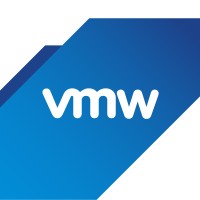Let’s think about this for a second — what is more important: the pace at which a business must change its technology in order to keep up with its competitors or the culture that makes the whole thing flow efficiently? It’s an interesting conundrum, and one that Gautham Pallapa, Senior Executive Advisor at VMware thinks about often.
“I look at things through the lens of culture, organization and people and processes first, because it’s very easy to bring in the right technology. Technology is much more discreet. It’s people and the culture that’s not.”
The bottom line for Gautham: culture wins, and it’s time for companies of all sizes to invest in it. On this episode of IT Visionaries, Gautham, self described as a culture evangelist, author, and a founder, explains how he works with some of VMware’s biggest customers to help them transform their businesses. He talks about why he advocates for culture ahead of technology, and he gives his reasons for why focusing on workplace culture is going through a digital renaissance of its own. Enjoy this episode.
Main Takeaways
- Taking a Modern Approach: While every company goes through some kind of digital transformation, it is important to also make sure that while you’re investing in your technology, you also invest in your workplace culture. Oftentime companies focus solely on the things that drive value and profit margins and not enough on the components of the organization that make it run.
- Leading with Empathy: 87% of remote workers report working longer hours than the traditional nine-to-five. With more employees working remotely than ever before, businesses must adapt their leadership styles to reflect the changing workplace. This means taking into account the challenges remote workers face and working with them through those struggles.
- End the Day on High Note: One of the ways organizations can lead with empathy is by creating a workplace culture that not only motivates employees to accomplish their tasks, but also praises them for their accomplishments. This can include implementing meetings such as “spin downs,” which are end of the day conversations designed to praise employees for the work they did that day.
For a more in-depth look at this episode, check out the article below.
Article
Let’s think about this for a second — what is more important: the pace at which a business must change its technology in order to keep up with its competitors or the culture that makes the whole thing flow efficiently? It’s an interesting conundrum, and one that Gautham Pallapa, Senior Executive Advisor at VMware thinks about often.
“I look at things through the lens of culture, organization and people and processes first, because it’s very easy to bring in the right technology. Technology is much more discreet. It’s people and the culture that’s not.”
The bottom line for Pallapa: culture wins, and it’s time for companies of all sizes to invest in it. On this episode of IT Visionaries, Pallapa, self described as a culture evangelist, author, and a founder, explains how he works with some of VMware’s biggest customers to help them transform their businesses. He talks about why he advocates for culture ahead of technology, and he gives his reasons for why focusing on workplace culture is going through a digital renaissance of its own.
For the last year Pallapa has worked with VMware as a senior executive and advisor to some of the company’s largest customers — partnering with them through technical efforts such as modernizing their technology stack and seeing them through their cloud migration efforts. But the group’s responsibilities don’t stop there, as they also help those same customers navigate through some of the biggest challenges facing companies today, including managing a workforce that is migrating to a remote atmosphere.
“On average, over 87.5% of the workforce reported spending at least four additional hours per week just to meet the deliverables,” Pallapa said. “It’s actually worse when you consider the IT industry, or software developers, because they have to attend all these meetings. And then afterwards they have to go and start working on their projects and try to improve upon things. It’s insane.”
One of the leading reasons employees find themselves working longer hours, despite working from home, is the unintended interruptions that occur throughout the day. Another leading cause is Zoom fatigue, which has become a common saying over the last year for employees who struggle with an increase in meetings and time spent in front of a screen.
“One of the things that we do is we try to have smarter meetings,” Pallpa said when speaking of his own leadership style. “We reduce them to 25 minutes instead of 30, or 50 minutes instead of an hour. The fundamental question that we ask is, ‘Is this meeting even necessary?’ If it’s a status update, just send an email out, or post it in Slack or whatever your favorite channel is.”
Another area Pallapa suggested focusing on from a leadership perspective is leading through empathy, which he said was one of the core principles that he follows.
“Empathy is at the core of everything that we do,” he said. “The first thing I tell executives when we meet is to put on the lens of empathy and say, ‘Okay, let’s take a look at how value is flowing within your organization from concept to creation.’ This is the path to production.”
The path to production includes looking at things such as where friction is occurring within an organization, what is generating that friction, and lastly how can it be reduced? Pallapa said there are four major themes that he has been able to derive from this process which include analyzing a workplace’s execution, collaboration, communication and enablement.
To hear more about Pallapa’s leadership philosophy and other suggestions he has, check out the full episode of IT Visionaries!
To hear more about Pratt’s life journey to Noodle.ai and the unique ways they are using data and machine learning to cut down the world’s waste, check out the full episode of IT Visionaries!
To hear the entire discussion, tune into IT Visionaries here.




